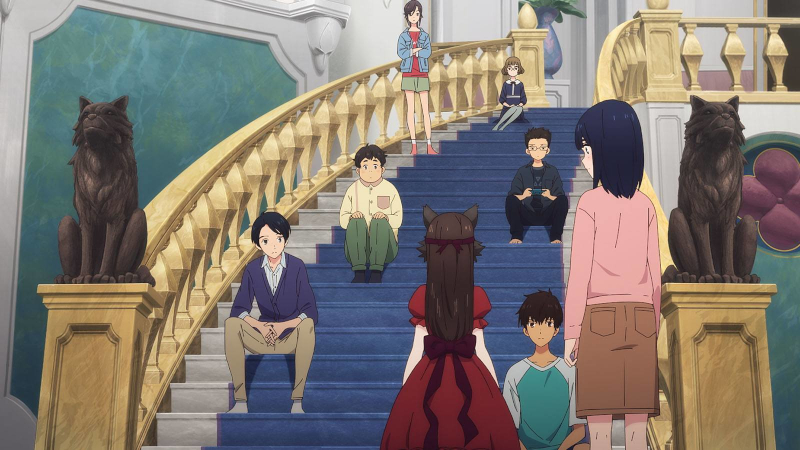Director – Keiichi Hara – 2022 – Japan – Cert. – 116m
*****
Seven children are sucked via mirrors in their homes into a mysterious castle perched high above a sea, presided over by a wolf queen, and prowled by a hungry wolf at night – plays UK cinemas in the Japan Foundation Touring Film Programme 2024 between Friday, 2nd February and Sunday, 31st March
Teenager Kokoro Anzai (voice: Ami Touma) can’t face going to school. Her understanding mother (voice: Kumiko Aso) takes her instead to the Classroom of the Heart at an alternative school for a session with friendly teacher Mrs. Kitajima (voice: Aoi Miyazaki). This is to be Kokoro’s new school, but in the end, she can’t face going to that one either, so her mum phones her in as sick.
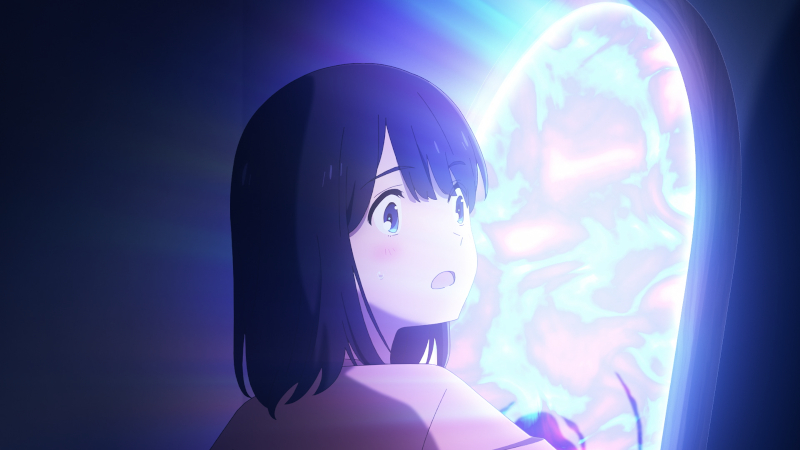
Moping in her bedroom, she is attracted to lights glowing around the tall mirror there before touching its surface which, like the mirrors in Orphée (Jean Cocteau, 1950) dissolve to allow her to pass through them into another world. On the other side, she finds herself in a castle perched high on a rock above a sea along with six other kids – tall Aki (voice: Sakura Kiryu), soccer player Rion (voice: Takumi Kitamura), computer geek Subaru (voice: Rihito Itagaki), piano player Fuka (voice: Naho Yokomizo), enigmatic Masamune (voice: Minami Takayama), and dumpy Ureshiro (voice: Yuki Kaji).
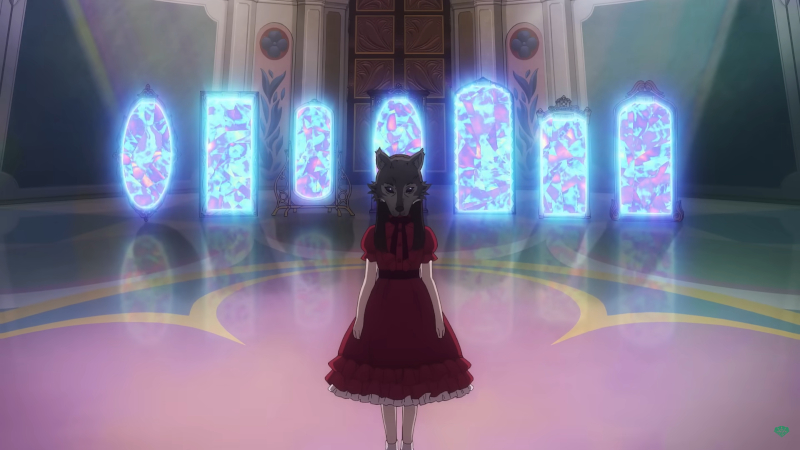
The castle is run by a younger girl wearing a wolf mask who calls herself the Wolf Queen (voice: Mana Ashida), and she explains the place’s rules. They are guests who may come and go as they please, provided they always leave before the clock strikes five in the afternoon. Should they stay any later, they will be eaten by the wolf.
That latter threat notwithstanding, it seems a pleasant enough place to stay. The Wolf Queen further explains that it is a place where wishes can be granted, or rather one wish can be granted for whoever finds the key, which is hidden somewhere on the premises. Fulfilling this will cause them all to lose their memories of the castle and each other, but if no-one claims the wish, they will retain those memories. Looking around the labyrinth of corridors, the children find rooms, with each of their names on the doors, containing furnishings and features tailored to their specific personalities and needs.
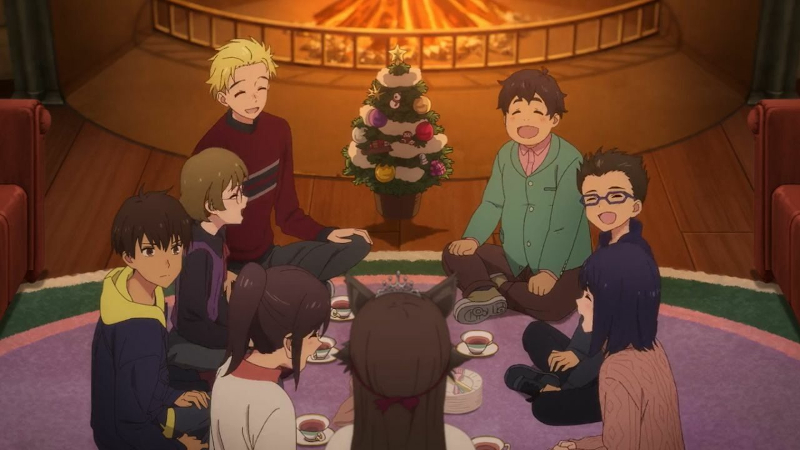
The children are all reticent, withdrawn introverts, Kokoro more than most. As they slowly get to know one another over their months of visiting, they discover that all of them have problems at school and have been helped by Mrs. Kitajima. Indeed, they attend the same school, but when they agree to go to school to meet up in the real world, none of them can find the others.
And then, inevitably, the day arrives when one of them fails to leave the castle before the clock strikes five… and everything changes.
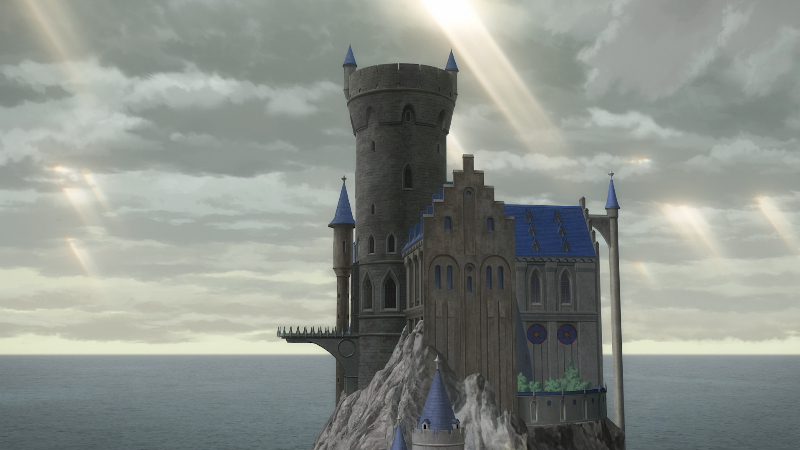
Adapted from the novel by Misuki Fujimura, this is a beautifully paced narrative in which a group of emotionally damaged kids spend time together in a safe environment. The story and screenplay completely understand what they’re about. The scenes in the real world, which extend via the various different children to low self-esteem, bereavement, being bullied, being pushed too hard to succeed and, finally, suffering parental child sex abuse, are convincing and in the case of the latter suitably harrowing without ever becoming overly upsetting or traumatic.
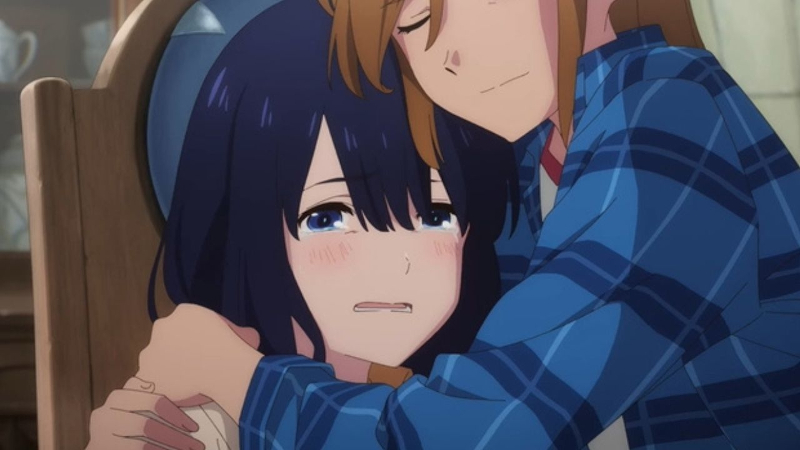
Until the five O’clock deadline is missed, the castle functions as not only a place of safety, but also something more: after a while, the kids find a camaraderie with each other and, eventually, with the more distant Wolf Queen. The place starts to feel like a luxury holiday home where, despite the lack of electric power and computer technology, everything you could possibly want in order to relax, take it easy and recover from the day-to-day stresses of the world is provided; an experience you would prefer to retain in your memories rather than lose.
One could imagine the production proving effective as a live action piece, although since much of its strength lies in the deft sketching of its characters and its perfectly paced denouement, it works equally well as an anime executed in the familiar, codified, Japanese 2D style. A very clever movie which, beneath its subtly rendered fantasy children’s story surface, skilfully probes various types of childhood trauma. Highly recommended, both for adults and kids.
Lonely Castle in the Mirror plays UK cinemas in the Japan Foundation Touring Film Programme 2024 between Friday, 2nd February and Sunday, 31st March.
Trailer:
